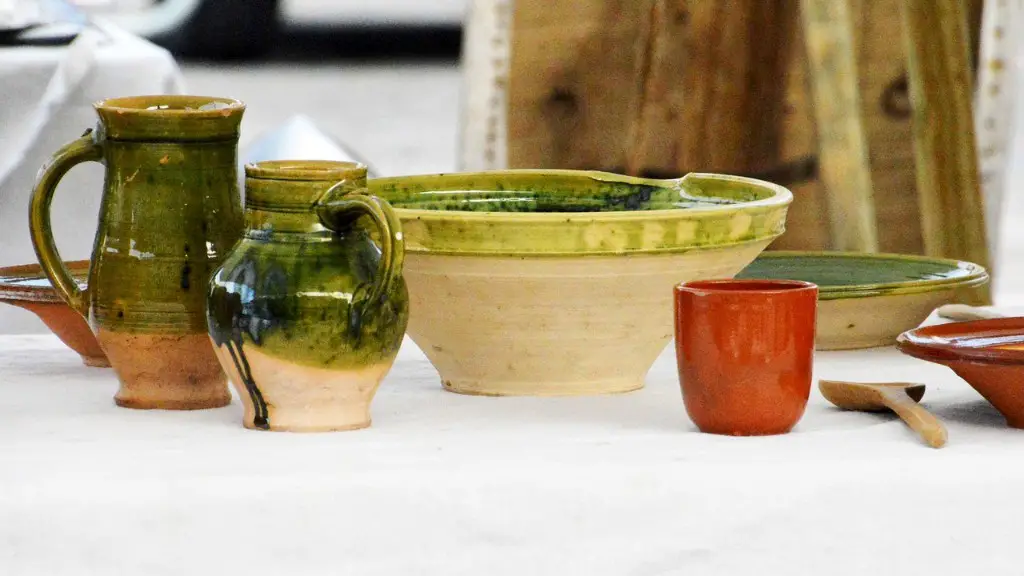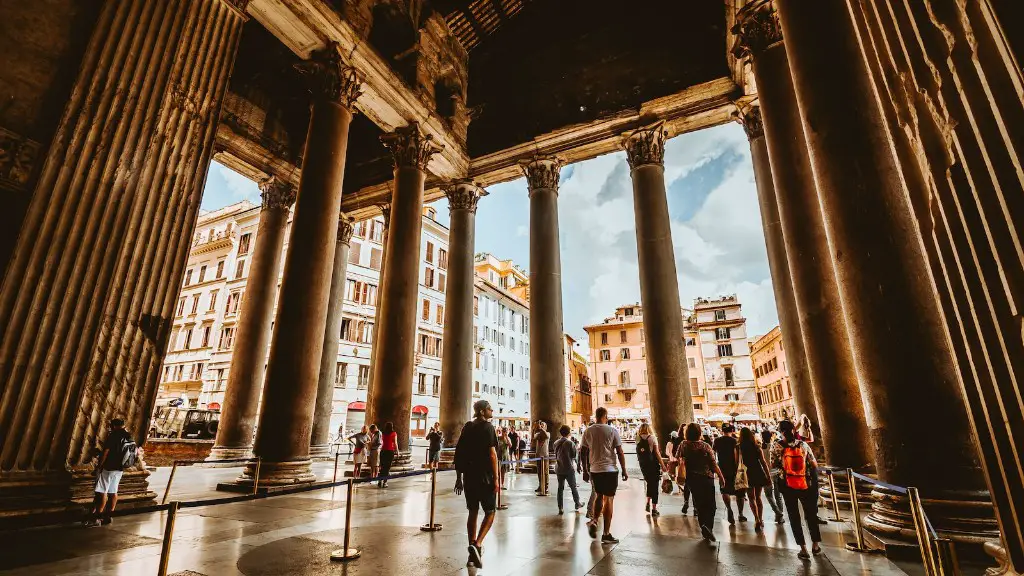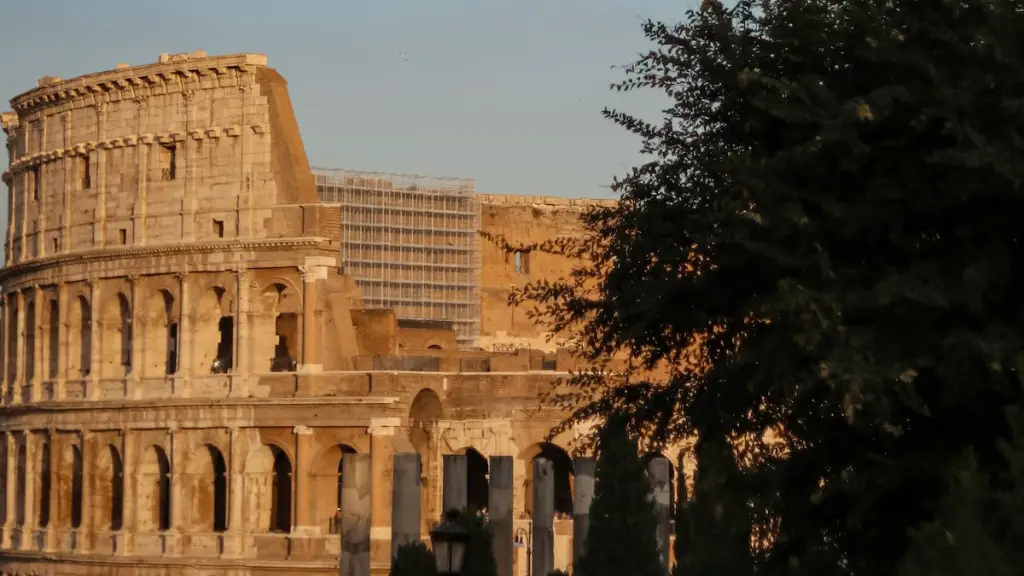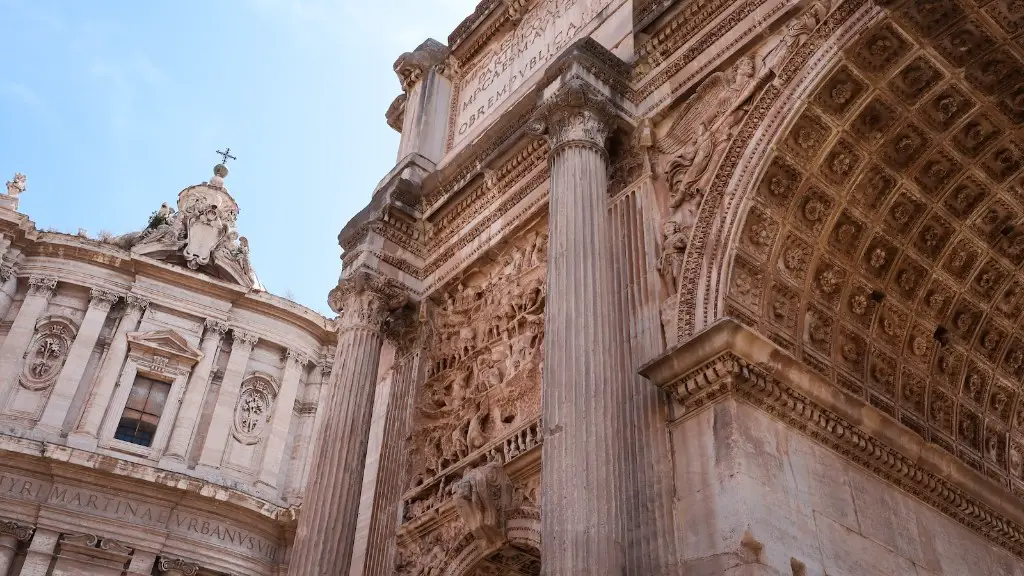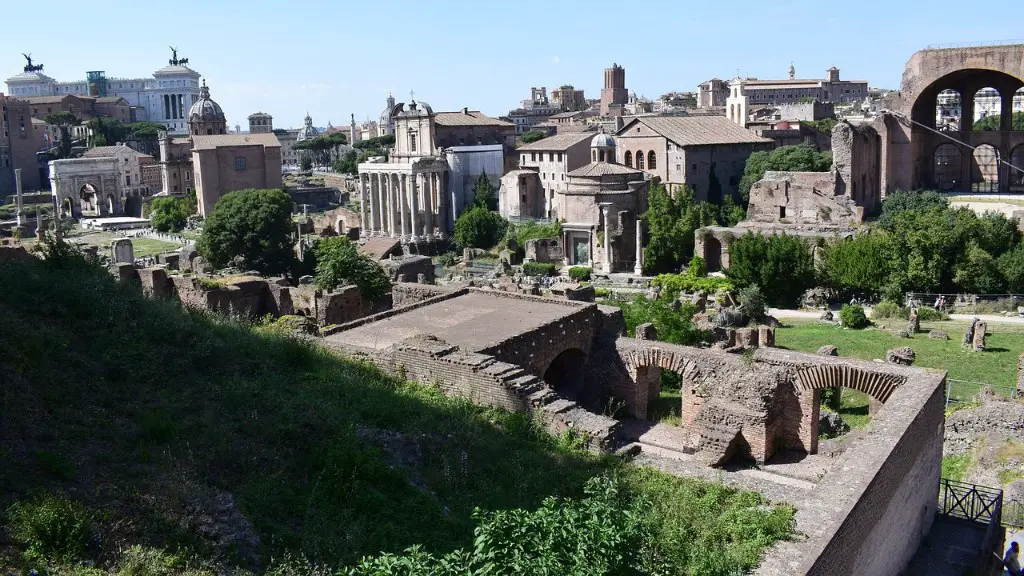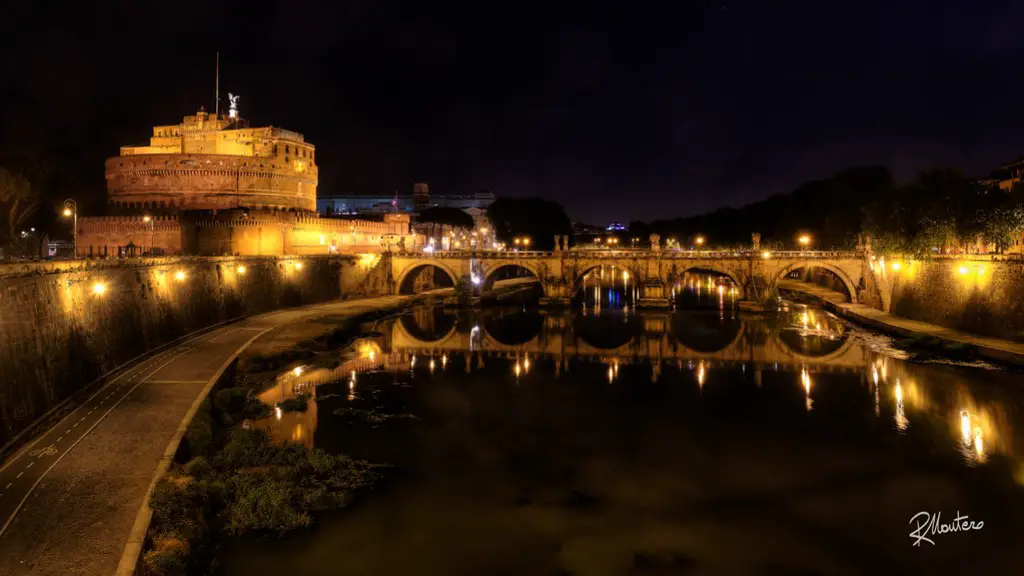The Roman religion was polytheistic, meaning that people worshipped many gods and goddess. The main gods and goddesses in the Roman pantheon were Juno, Jupiter, Mars, Minerva, Neptune, Pluto, Ceres, and Vesta. The Romans believed that these gods and goddesses had control over different areas of life, and so people would worship them in order to gain favor in that particular area. For example, Ceres was the goddess of agriculture, so farmers might have prayed to her for a good harvest.
The ancient Romans hitched their wagon to a lot of different deities. The primary ones were Jupiter, Juno, and Minerva, but they also looked to Diana, Venus, Mars, and a number of others for help, guidance, and protection.
What religion did the Romans worship?
The ancient Romans established a polytheistic system of beliefs, worshipping many different gods and spirits. They even thought some of these unseen entities were the spirits of their former ancestors. Romans also believed that the gods had helped to cement the very foundations of Rome.
The ancient Romans believed in a pantheon of gods and goddesses, as well as numerous lesser deities. Every household also worshipped spirits who were thought to protect the family, home, and even the trees and rivers. These spirits were regularly worshipped with offerings and prayers. The religion of ancient Rome was thus highly diverse, with many different belief systems and practices.
Who was the Romans favorite god
Jupiter was the God above all other Gods in Rome. Equivalent to the Greek God Zeus, he was represented as King of the other Gods, several of which were described as his children. Jupiter was the patron God of the Roman state and its institutions, and his temple on the Capitoline Hill was the center of Roman religious life.
The Deii Consentes were the twelve main gods and goddesses of the Roman pantheon. They were: Jupiter, Juno, Neptune, Minerva, Mars, Venus, Apollo, Diana, Vulcan, Vesta, Mercury, and Ceres. These gods and goddesses were responsible for the various aspects of Roman life, such as war, wisdom, agriculture, and love.
Who did the Romans worship before Christianity?
The Roman Empire was primarily a polytheistic civilization, which meant that people recognized and worshiped multiple gods and goddesses. The main god and goddesses in Roman culture were Jupiter, Juno, and Minerva.
The crucifixion of Jesus was a turning point for both the Romans and the Christians. To the Romans, Jesus was a troublemaker who had got his just desserts. To the Christians, however, he was a martyr and it was soon clear that the execution had made Judaea even more unstable. Pontius Pilate – the Roman governor of Judaea and the man who ordered the crucifixion – was ordered home in disgrace.
When did Romans stop believing in gods?
Prior to 312 AD, the Romans were quite adamant about persecuting people who refused to honor the traditional gods with sacrifices and rituals. This was largely due to the fact that they believed that doing so was a matter of life and death. However, after Constantine became a convert to Christianity, this changed and people were no longer persecuted for their refusal to participate in these activities.
The Religio Romana, or Roman Religion, was the major religion practiced in the city of Rome in ancient times. The first gods held sacred by the Romans were Jupiter, the highest god, and Mars, the god of war and father of Rome’s twin founders, Romulus and Remus, according to tradition.
What religion was Jesus
It’s important to remember that Jesus was a Jew. He was born to a Jewish mother in Galilee, and all of his friends and associates were Jews. He regularly worshipped in Jewish communal worship spaces, known as synagogues. Keep this in mind when studying the New Testament and the life of Jesus.
The 12 Roman Gods were: Jupiter, Juno, Mars, Mercury, Neptune, Venus, Apollo, Diana, Minerva, Ceres, Vulcan, and Vesta.
Jupiter held thunderbolts in his hands, which he could throw from the sky. Juno was the queen of the gods and was married to Jupiter. Mars was the god of war and was often depicted carrying a sword and shield. Mercury was the messenger of the gods and was often depicted with winged feet. Neptune was the god of the sea and was often depicted carrying a trident. Venus was the goddess of love and was often depicted with a flower in her hair. Apollo was the god of the sun and was often depicted with a bow and arrow. Diana was the goddess of the moon and was often depicted with a bow and arrow. Minerva was the goddess of wisdom and was often depicted with a book in her hand. Ceres was the goddess of fertility and was often depicted with a sheaf of wheat in her hand. Vulcan was the god of fire and was often depicted with a hammer. Vesta was the goddess of the hearth and was often depicted with a fire in her hand.
Who is the most respected Roman god?
Jupiter was one of the three most important gods in Roman mythology. He was the protector of the state and was often depicted as a powerful figure. Juno was the protector of women and was often associated with fertility and childbirth. Minerva was the goddess of craft and wisdom and was often shown as a wise and intelligent woman. Mars was the god of war and was often shown as a fierce and battle-ready warrior. Mercury was the god of trade and messenger of the gods. He was often shown as a cunning and shrewd businessman. Bacchus was the god of grapes and wine production. He was often shown as a jovial and carefree figure.
Jupiter is the most powerful god in Roman mythology. He is equivalent to the Greek god Zeus. Jupiter is the king of all gods and has the final word in all matters. He is often depicted holding a thunderbolt, which he uses to bring order to the universe.
Who is the main pagan god
The most popular gods and goddesses in Norse mythology are Thor, Odin, Freyja, Frigg, Freyr, Tyr, Loki, and Heimdall. Each of these deities has their own distinct personality, history, and domain.
The Romans believed that their gods were responsible for their success in battle and in life. These gods were known as the protectors of Rome and its people. The most important gods were Jupiter, Juno, Neptune, Minerva, Mars, Venus, and Apollo. Each god had a specific role to play in Roman society. For example, Jupiter was the god of the sky and the protector of the state, while Mars was the god of war and the guardian of the Roman people.
Are Roman and Greek gods the same?
Most of the major Olympian gods and goddesses were worshiped by both the Greeks and the Romans, although they often went by different names. For example, Zeus was the head of the Greek pantheon, while Jupiter ruled over the Roman gods. Other major Olympians included Poseidon, Hades, Apollo, Athena, Hera, and Aphrodite.
While there are many similarities between Greek and Roman mythology, there are also some important differences. For instance, the underworld in Roman mythology is ruled by Pluto, while in Greek mythology it is Hades who presides over the dead. Additionally, Roman mythology has a god of war (Mars), while Greek mythology has a goddess of war (Ares).
Despite these differences, the two mythologies share a great deal in common, and it is not difficult to see how the Roman gods and goddesses are based on their Greek counterparts. If you are studying one of these mythologies, it can be helpful to keep a list of the main gods and goddesses and their Roman and Greek names. That way, you can quickly refer to them by either name and know who you are talking about.
Cornelius was a Roman centurion who is considered by Christians to be the first Gentile to convert to the faith, as related in Acts of the Apostles. This is an important event in the history of the early Church, as it marks the beginning of the spread of Christianity to the Gentiles.
Conclusion
The Roman religion was polytheistic, and they worshipping their gods and goddesses by making sacrifices and offerings at temples. They believed that their gods and goddesses intervened in human affairs and so they appeased them through prayer and ritual. Some of the main gods and goddesses that the ancient Romans worshipped include Jupiter (the king of the gods), Juno (the queen of the gods), Minerva (the goddess of wisdom), and Mars (the god of war).
The ancient Romans worshipped a wide variety of gods and goddesses. Some of their most popular deities include Jupiter, Juno, and Minerva. The Romans believed that these gods and goddesses controlled different aspects of their lives, so they would pray to them for help with things like harvest, love, and war. While the specifics of their beliefs may have changed over time, the ancient Romans always held a deep respect for their gods and goddesses.
